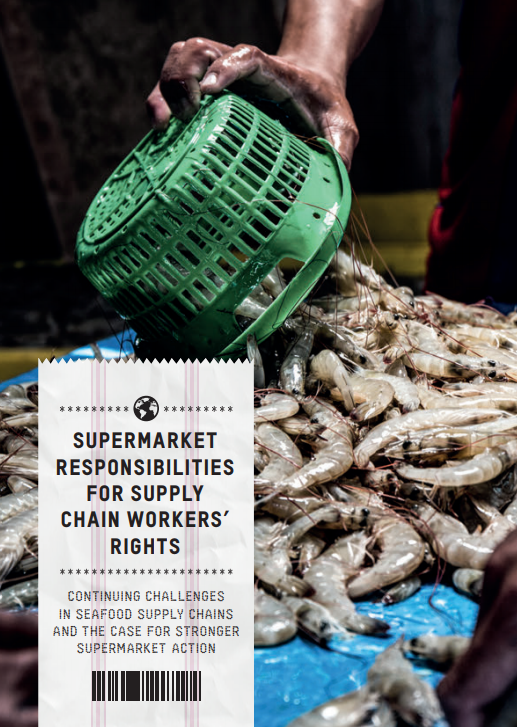International food supply chains provide employment for tens of millions of women and men around the world, demonstrating the potential for private sector actors to fight poverty and inequality.
Yet far too many work in appalling conditions. The ongoing challenges in seafood supply chains are illustrative of the problems that can arise and the need for stakeholders to tackle their root causes. This is one of a series of in-depth studies to supplement Oxfam’s global campaign report, Ripe for Change: Ending human suffering in supermarket supply chains.
This report assesses recent progress in realizing workers’ rights in seafood supply chains originating in Southeast Asia; provides new evidence of ongoing workers’ rights challenges in US and European supermarket shrimp supply chains beginning in Indonesia and Thailand; and explores the need, in particular, to address the buyer power of supermarkets and other lead firms to squeeze value from their suppliers.
The results of Oxfam’s Supermarkets Scorecard on the ‘Workers’ theme reveal the further steps that supermarkets can and should take to identify and address their impacts on supply chain workers’ rights around the world, in line with their responsibilities under the UN Guiding Principles on Business and Human Rights.

